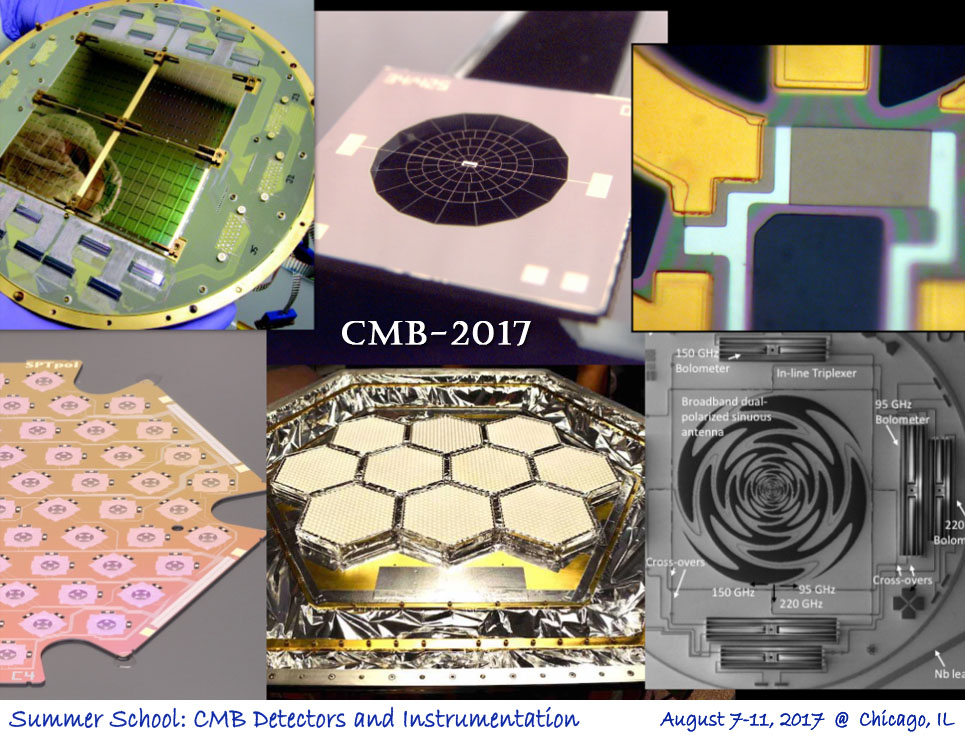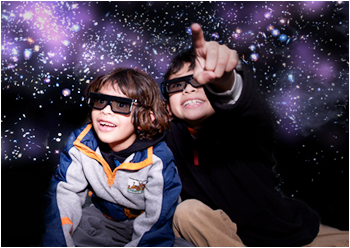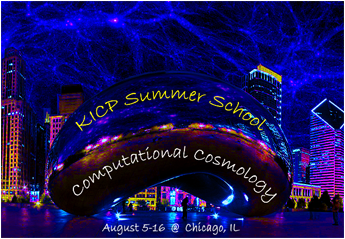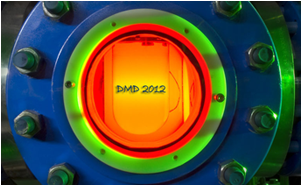 |
 |
 |
 |
 |
 |
 |
 |
 |
 |
|
KICP Workshops & Events
|
KICP Summer Schools Hands-on summer schools for junior researchers that build upon the interdisciplinary strengths of the KICP. Summer School: CMB Detectors and Instrumentation August 7 - 11, 2017 | Chicago, IL Website This 1-week "hands-on" summer school is designed to provide the participants with working knowledge of the detectors and instrumentation used to detect the tiny temperature and polarization anisotropy of the cosmic microwave background (CMB). Early graduate students interested in pursuing a PhD in experimental CMB research methods are particularly encouraged to apply. A feature of the school is hands-on activities to teach students the basics of CMB instrumentation. We expect to have room for approximately 15 students. Topics will include: superconducting detectors, e.g., transition-edge-sensor (TES) bolometers, kinetic-inductance-detectors (KIDs); detector characterization (responsivity, beams, bands, time constants, polarization calibration); coherent techniques for characterizing mm-wave components; SQUIDs and detector readout; antenna design; and Fourier transform spectroscopy. The School will be held at the Kavli Institute for Cosmological Physics (KICP) at the University of Chicago in the William Eckhardt Research Center (ERC). Read more >> Related Links: KICP Members: Ritoban Basu Thakur; Amy Bender; Bradford A. Benson; John E. Carlstrom; Clarence L. Chang; Thomas M. Crawford; Jason Henning; Stephen Padin; Erik Shirokoff; Abigail G. Vieregg KICP Students: Nikita Kuklev; Mira Liu-Sarkar; Zhaodi Pan Scientific projects: BICEP2/The Keck Array/BICEP3; South Pole Telescope (SPT) Summer School on Education and Outreach June 16 - 27, 2014 | Chicago, IL Website | Photo Gallery Organizer: Randall H. Landsberg The Kavli Institute for Cosmological Physics (KICP) at the University of Chicago will host a Summer School on Education and Outreach from June 16 to June 27, 2014. This two-week summer school will immerse early career researchers in education and outreach (E&O) and allow them to gain experience and exposure to best practices by working with other scientists, E&O professionals, and museum staff on real projects. The core of the summer school will be a one-week practicum where students will be embedded in an existing E&O program and work with their mentors to develop K-12 lab activities, museum programming, visualizations, or a citizen science activity. The school will also provide a concise introduction to E&O basics through lectures and panel discussions on key topics (e.g., National Science Foundation, NSF, broader impacts), case studies of exemplary programs (e.g., the Brain Scoop), and field trips to Chicago area institutions including the Chicago Museum of Science & Industry (MSI), the Digital Media Lab/YOUmedia and the Adler Planetarium & Astronomy Museum. Because communication is central to effective E&O (and science), the school will kick-off with a special one-day science communication workshop presented by the Alan Alda Center for Communicating Science. The school will culminate with presentations by the participants on the results of their practicum experiences to their peers and a panel of E&O experts and faculty from the School of the Art Institute of Chicago (SAIC). Read more >> Related Links: KICP Members: Randall H. Landsberg Summer School: Computational Cosmology August 5 - 16, 2013 | Chicago, Il Website | Photo Gallery Organizers: Nickolay Y. Gnedin, Salman Habib, Katrin Heitmann, Andrey V. Kravtsov The Kavli Institute for Cosmological Physics (KICP) at the University of Chicago will host a Summer School on Computational Cosmology from August 5 to August 16, 2013. The aim of the School is to expose a select group of 15 to 20 graduate students to the challenges of modern high-performance computing in cosmological research. During the school the emphasis will be on specific hands-on projects designed to teach modern cosmological simulation techniques. The course will also inform students regarding current challenges in the era of petascale supercomputing, and near future challenges, as computation transitions from the petascale to the exascale within the next decade. Orientation discussion sessions on ongoing projects and/or a brief lecture in the morning of each day will be followed by work on individual research projects under the guidance and supervision of school instructors and assistants. The projects will be designed to teach students to set up and run modern N-body and associated analyses (halo finding, visualization, MCMC calculations). Computational work will be carried out on the University of Chicago midway cluster and on development racks of the Blue Gene Q Mira supercomputer at Argonne National Laboratory (ANL). The School will be held in the Laboratory for Astrophysics and Space Research (LASR) at the Kavli Institute for Cosmological Physics. Students will spend the last 2-3 days of the school at Argonne National Laboratory, where they will be introduced to the Argonne Leadership Computing Facility and the Exascale Technology and Computing Institute and will have a chance to implement visualizations of the data based on their school project at the ALCF visualization lab. Read more >> Related Links: KICP Members: Nickolay Y. Gnedin; Salman Habib; Katrin Heitmann; Andrey V. Kravtsov Summer School: Dark Matter Detectors July 11 - 21, 2012 | Chicago, IL Website | Photo Gallery Organizers: Juan I. Collar, Paolo Privitera The Kavli Institute for Cosmological Physics (KICP) at the University of Chicago will host a Summer School on Dark Matter Detectors from July 11th to July 21st 2012. The aim of the School is to expose a select group of 15 to 20 graduate students to the challenges of designing, building, and operating both current and future dark matter detectors for searches conducted at underground laboratories. The School will provide the students a full-immersion, hands-on experience, with several labs exploring experimental techniques for dark matter detection. Planned experiments that students will be able to perform include: calibration of photon detectors, characterization of ultra-pure Germanium detectors, radiopurity determination through spectroscopic measurements, the art of fighting electronic noise, shielding techniques, measurement of a scintillator's quenching factor, particle detection with a bubble chamber and CCDs, and measurement of electroluminescence in noble gases. Data acquisition and simulation techniques will also be covered. The School will be held in the Laboratory for Astrophysics and Space Research (LASR) at the University of Chicago. A visit to Fermi National Accelerator Laboratory (Fermilab), where the students will become familiar with noble liquid, bubble chamber and cryogenic detectors, is also included. Read more >> Related Links: KICP Members: Juan I. Collar; Paolo Privitera Scientific projects: Coherent Germanium Neutrino Technology (CoGeNT); COUPP/PICO |









 Overview
Overview